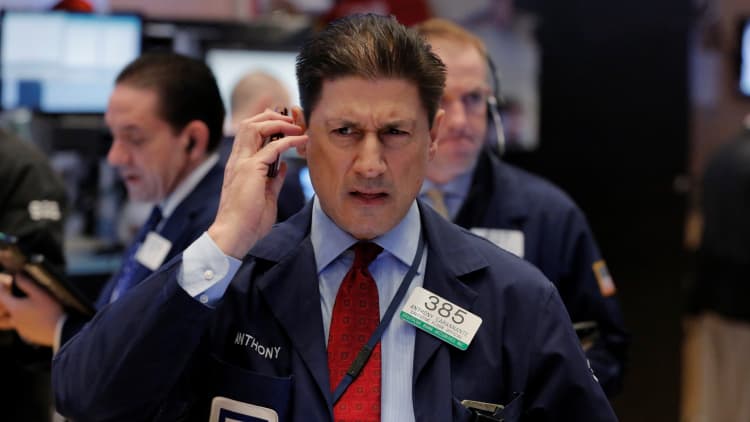U.S. stocks are at record levels, and one of Wall Street's top strategists is "scared senseless" of betting against them.
The Dow Jones industrial average and the notched new highs Tuesday, adding to their already stellar performance for the year. The two indexes have surged more than 10 percent each in 2017.
Jason Trennert, managing partner at Strategas Research Partners, said in a note Tuesday the market appears to be "fairly valued" at these levels. However, he also listed four reasons why he refuses to short this market. Trennert is one of the most widely followed strategists on Wall Street and is consistently ranked among the top strategists by Institutional Investor.
First, he cites the low inflationary expectations in the market.
The U.S. economy has grown at a slow and steady pace this year, and sentiment indicators have mostly remained positive. But inflation data remained subdued for most of 2017. The consumer price index, a widely followed barometer for U.S. inflation, has risen just 1.6 percent in the 12 months through June.
This, however, should support the market's higher trading multiple. The S&P's one-year forward price-to-earnings ratio, a widely used metric to determine how expensive the market is, hovered around 17.7.
Valuation has been a concern for some market experts. Late last month, analysts at Goldman Sachs Asset Management pointed out that returns on the S&P 500 have been subpar 99 percent of the time when valuations are so high.
But Trennert said: "An econometric model of earnings multiples based on current levels of inflation, interest rates, and taxes would suggest that the S&P could conceivably trade at 20x earnings."
His second reason concerns Wall Street's expectations for how much of President Donald Trump's economic agenda will move forward. In his note, Trennert said these expectations are "exceedingly low."
U.S. stocks shot through the roof after Trump won the presidency, as investors bet on a swift path toward tax reform, fiscal spending and deregulation under a Republican government. While Trump has been able to cut back on some regulations, he has found it increasingly difficult to get any form of tax reform or infrastructure spending off the ground.
The administration has been mired by numerous setbacks, including multiple failed attempts at repealing and replacing the Affordable Care Act and several key personnel changes.
But Trennert said Strategas expects the administration "will achieve something between a tax cut and full-fledged tax reform by the first quarter of 2018. Our proprietary stock baskets suggest that such an occurrence is absolutely not priced into current equity prices."
Trennert's third reason for not going against the tide is the lack of euphoria in the market. In the note, Trennert said this bull market has not seen "meaningful" participation from retail investors.
Professional investors often point to a surge in retail participation in the market as a sign of a market top. Trennert notes that the average daily trade volume in the S&P 500 is lower in 2017 than last year and remains well below levels seen before the financial crisis.
Lastly, Trennert said a bull market can keep moving higher even if it's already at fair value.
WATCH: The U.S. market may not deliver through the rest of the year: Pro



